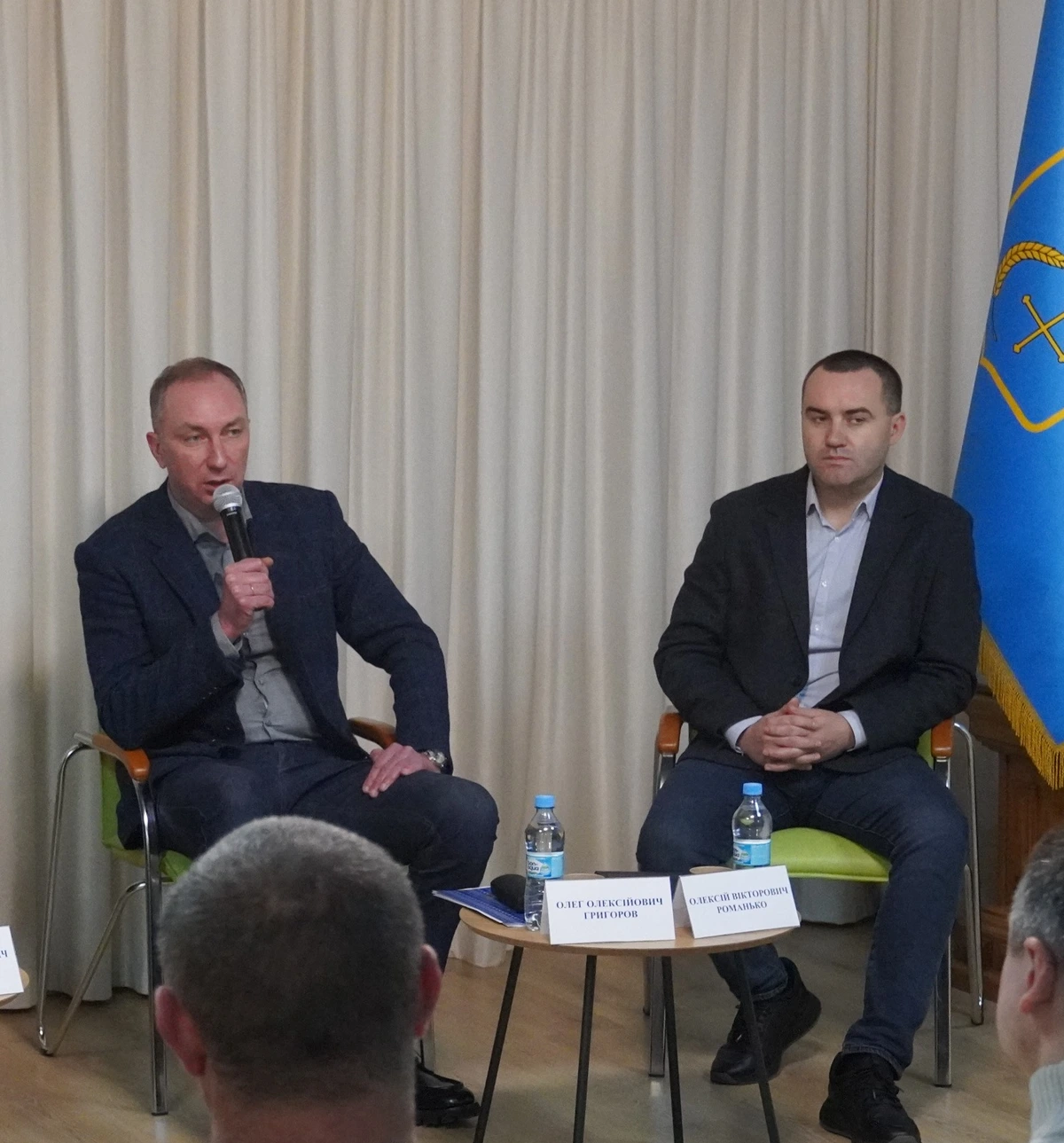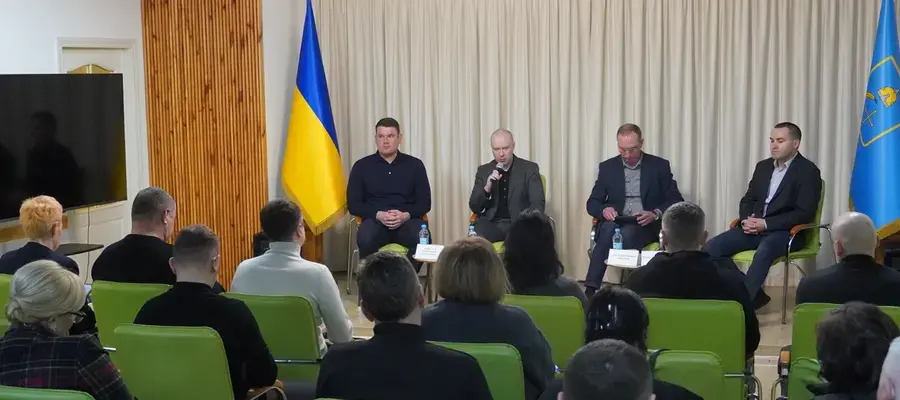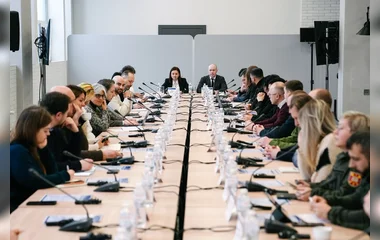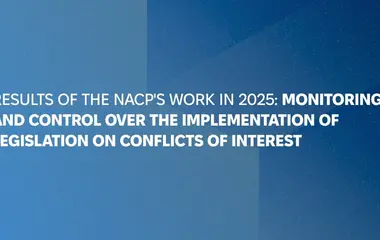A delegation of the National Agency on Corruption Prevention (NACP) led by NACP Deputy Head Serhii Hupiak visited the Sumy region.
During the visit, NACP representatives discussed corruption prevention in the areas with the highest corruption risks in the region with local authorities, as well as with specialists responsible for anti-corruption activities in the area. In addition, a number of meetings were held with law enforcement officers, civil society activists, and media representatives of the Sumy region.
“We understand that for regions like Sumy, the main task is to withstand and ensure an adequate standard of living for the population under conditions of russian aggression. However, the initiative for the appropriateness of our visit came precisely from the regional leadership, civil society, and law enforcement, since everyone understands that corruption prevention remains relevant even during war,” said Serhii Hupiak.

In turn, Head of the Sumy Regional State Administration (RSA) Oleh Hryhorov emphasized that for local authorities it was important to hear that NACP is a partner that understands which factors and in which area pose risks of corruption abuses.
In communication with local authorities, the NACP Deputy Head focused on the most corruption-vulnerable sectors of the region. According to him, in the Sumy region - as in other frontline and border-adjacent regions - these include the restoration of facilities destroyed or damaged as a result of russian aggression, construction of fortifications and procurement of materials for them, public procurement, as well as certain issues related to the distribution of humanitarian aid among security and defense units.
“Corruption in the field of public procurement is characteristic of all of Ukraine. Sumy is no exception, because here a large number of facilities need to be rebuilt and restored: critical and residential infrastructure and enterprises suffer due to russian terrorists. Therefore, this sector will receive all efforts and assets in the future. And where there is a large circulation of funds, the temptation for abuses arises,” emphasized Serhii Hupiak.
NACP has studied corruption risks during public procurement under martial law and has also developed methodological materials that will be useful for all participants in state procurement.
For a border region, transparent and efficient use of budget funds for restoring facilities damaged by russian aggression is no less important. The National Agency identifies the recovery sector as a priority and one that requires special attention. Corruption risks in this sector are exacerbated, in particular, by the moratorium on architectural and construction control, which makes systematic state oversight of work quality impossible. NACP conducted several studies to identify corruption risks during recovery, including possible abuses in the selection of facilities, artificial inflation of the cost of construction work, improper verification of procurement participants, and setting discriminatory requirements for them.
“In regions like Sumy, constant shelling and frequent destruction create objective difficulties with forming and completing bureaucratic procedures related to the recovery sector. Therefore, representatives of local authorities request that such situations be taken into account at the state level, that an appropriate legal provision be introduced, and that public procurement and funding continue even under such extreme conditions,” the NACP Deputy Head emphasized.
In addition, given the ongoing hostilities in the region, the issue of constructing defensive structures, selecting locations for them, and determining their modifications remains critically important. Corruption risks in this area arise primarily due to the impossibility of publicly reporting on work conducted at military facilities and the classified nature of the relevant documentation. The Deputy Head called on local authorities to use electronic platforms with maximum openness of information and to involve the public in discussing procurement issues in general.
“Today we received advice and recommendations on the use of anti-corruption tools, and we also made sure that we, as local authorities of a frontline region, were heard - under constant russian aggression, some bureaucratic procedures that contain corruption risks require adjustment at the legislative level,” summarized Oleh Hryhorov, Head of the Sumy RSA.

In turn, Head of the Sumy Regional Council Oleksii Romanko noted that the meeting with representatives of the National Agency was extremely useful in terms of future cooperation and reporting to communities on issues of corruption prevention.
It should be noted that the NACP’s regional visits project was launched to strengthen cooperation with communities, local authorities, educational institutions, media, and civil society organizations in building integrity and ensuring effective implementation of the state anti-corruption policy, taking into account local problems and the specifics of regional challenges. To date, representatives of the Agency have already visited Lviv, Dnipro, Chernivtsi, Zhytomyr, Ivano-Frankivsk, Vinnytsia, Lutsk, Cherkasy, Khmelnytskyi, Kharkiv, Odesa, Rivne, Kropyvnytskyi, Ternopil, Zaporizhzhia, Poltava, Chernihiv, Mykolaiv, and the Kyiv region.


